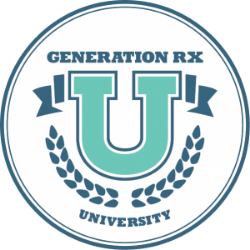As the substance use prevention field adapted to the changing landscape from this past year, Generation Rx University evolved to meet the needs of college students and young adults. Originally launched in 2014, the Generation Rx team designed the University toolkit to include four educational activities that focused on prevention messaging related to prescription opioids and stimulants, as well as general medication safety. These activities were intended to engage universal audiences (such as the general undergraduate population) through in-person delivery modalities.
During the past year, we have implemented toolkit updates that include adaptation of the toolkit for virtual use, new content related to prescription sedative misuse, and new resources for use by the fraternity and sorority (F/S) community. Out of the four educational activities originally available for in-person delivery, we recently adapted all four activities for virtual use. Virtual adaptations were embedded within both the activity and the facilitator talking points and reflect delivery of a synchronous session through a videoconferencing platform. We have also updated the toolkit facilitator guide to include program implementation guidelines for both in-person and virtual delivery, techniques for generating small group discussion, and tips for using person-first language during program delivery.
Over the past year, the Generation Rx team was also fortunate to collaborate with six inter/national fraternal organizations (Alpha Chi Omega, Kappa Kappa Gamma, Sigma Nu, Pi Kappa Alpha, Pi Kappa Phi, and Zeta Tau Alpha) to further evolve and update the University toolkit. While the University toolkit was a useful tool to each organization, they collectively had identified two critical needs: increasing the amount of education focused on the misuse of prescription sedatives, and broadly adapting the Generation Rx language in select activities to reflect the F/S experience. In order to address these needs, the Generation Rx team worked alongside these organizations through a needs assessment, design, and implementation process. Outcomes from this innovative collaboration included:
- – A new module included in the activity “Safe Medication Practices for Life: an Orientation to Generation Rx University” focused on prevention education related to prescription sedatives.
- – A new educational video that complements and supports this new prescription sedative module.
- – A new version of the “Safe Medication Practices for Life” activity that is adapted to reflect the F/S experience.
By using the updated University toolkit this fall, campuses can now provide free prevention education to both universal and F/S audiences focused on prescription opioids, stimulants, sedatives, and general safe medication practices through either in-person or virtual delivery modalities.
This fall also marks launch of the final year for the Generation Rx implementation mini-grant program funded through the Zeta Tau Alpha Foundation and administered through the Higher Education Center for Alcohol & Other Drug Misuse Prevention and Recovery (HECADO). The final seven campus grantees include Baker University, Clemson University, Rollins College, San Diego State University, Towson University, the University of Nebraska – Lincoln, and the University of Oklahoma – Southwest Prevention Center. Like these campus grantees, we hope you will consider how the Generation Rx University toolkit can best support the prevention needs and efforts on your campus.
Visit GenerationRx.org to learn more and download the free University toolkit.

Author:
Molly Downing, PhD
Associate Director Generation Rx
Senior Lecturer, The Ohio State University College of Pharmacy


